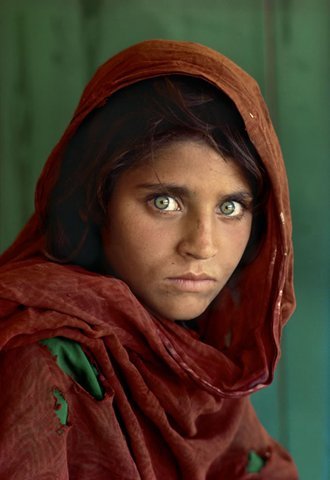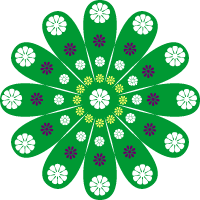|
What sets the Pashtuns apart is their practise of Pashtunwali, which is an unwritten Code of Honour. Women are central to this Code of Honour, which is to preserve their modesty and chastity. Pashtun women hold a high authority within Pashtun communities, in that without the presence of women along with their self-respect and good standing, a man cannot fully claim Pashtun status.


The Pashtun people are an East-Iranian ethno-linguistic group, whose language is Pashto. In modern history, settlements are across Afghanistan and the North-West Frontier of Pakistan, bordering Pakistan. Pakistan ethnic groups comprise of:
Punjabi 44.68%, Pashtun (Pathan) 15.42%, Sindhi 14.1%, Sariaki 8.38%, Muhagirs 7.57%, Balochi 3.57%, other 6.28%
In Afghanistan, ethnic groups comprise of:
Pashtun 42%, Tajik 27%, Hazara 9%, Uzbek 9%, Aimak 4%, Turkmen 3%, Baloch 2%, other 4%
The reputation of Pashtun women is essential to the honour of Pashtun men. Women have the responsibility of gaurding and protecting the status of men and the family, within the Pasthun community. For this reason, women are gaurded closely and protected. A man asking about the wife of another man isn't considered appropriate, just like it isn't appropriate for a person in the west to ask someone else about their personal things, such as wealth.
The Pashtuns are a private people and it is not only women who are safeguarded, but Pashtun men also make efforts to safeguard themselves, other immediate and extended family, their communities, honour and social status and any thing else that come with these. Just as anyone living in the west would protect their family home from intruders, the Pashtuns protect their communities from any intruders. Even though it is an islamic duty, Pashtun women who observe the Burkha, do so because it forms a part of their living cultural tradition and not primarily for Islamic purposes.
Pashtunwali has been in existence since before the advent of Islam and is it is still practised today.
Pashtunwali or Pakhtunwali is a concept of living or philosophy for the Pashtun people and is regarded as an honour code and a non-written law for the people. Though Pashtunwali dates back to the pre-Islamic times, its practice by the pashtuns doesn't contravene Islamic principles. It is practiced by Pashtuns in Afghanistan, Pakistan, and by members of the Pashtun diaspora around the world. Please click here for in-depth information on Pashtunwali.
|